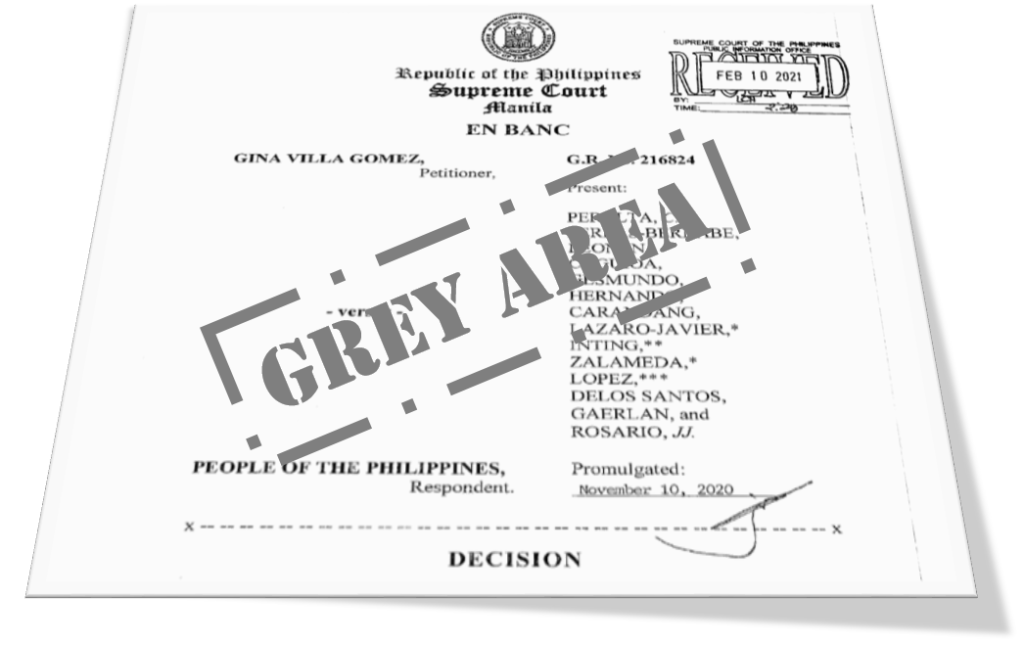
One of the issues discussed in the case of Gina Gomez vs People (G.R. No. 216824, 20 November 2020, Full Text | Case Digest) was: May an accused who was already acquitted during trial be convicted on appeal without violating the rule against double jeopardy?
Ordinarily, the answer would be in the negative. Once acquitted, an accused can no longer be convicted on appeal. The exception here is if the judge who acquitted the accused acted with grave abuse of discretion. This was the ruling in the Gina Gomez case.
In Gomez, the accused was acquitted by the trial court because the Information filed against her was not signed by the City Prosecutor. The basis of the judge in acquitting the accused was the case of Villa vs. Ibanez (88 Phil. 402) which had been affirmed by the Supreme Court numerous times.
Unfortunately for Gomez, the Ibanez case was overturned. In fact, the Supreme Court en banc declared that Ibanez is unconstitutional.
The gray area here however is that how can the Supreme Court declare that the trial judge acted with grave abuse of discretion in acquitting the accused when the trial judge was merely following the guideline in Ibanez which the Supreme Court itself affirmed numerous times until November 2020 when it promulgated Gomez?
The SC did explain that the trial judge should not have summarily quashed the Information. It should have called for a preliminary hearing notifying the Prosecution and allowing it to argue as to why the Information should not be quashed. This is specially so in this case because both parties had already rested and the case was already submitted for decision. By not calling for a preliminary hearing, the judge acted with grave abuse of discretion.
But still, such a preliminary hearing (after both parties have rested their respective cases) is not even in the Rules. The judge, bearing in mind Ibanez, can and may exercise sound discretion in quashing the Information. The judge had a sound basis. The judge was protected by a good law.
How about you, what do you think? Chime in below.


